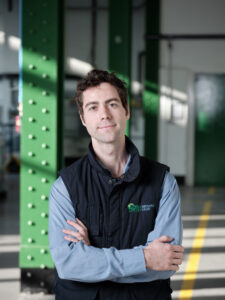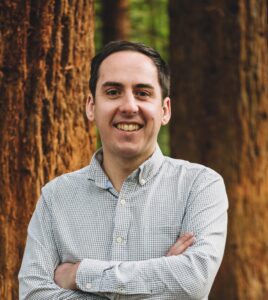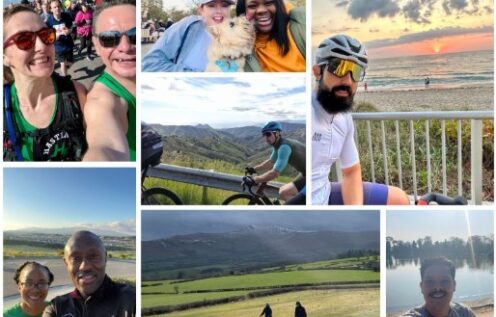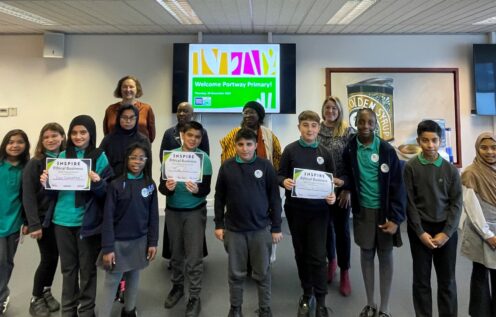12/02/2025 News
The power of apprenticeships to upskill our colleagues
At Tate & Lyle Sugars, apprenticeships are not just about securing a job, they are about developing important skills that can last a lifetime, both in an out of the workplace.
We hear from two colleagues who have undertaken the Senior Leadership Apprenticeship and share what the apprenticeship has meant to them and their careers.
 Thomas Sutton, Level 7 Senior Leadership Apprenticeship (SLA); Distinction
Thomas Sutton, Level 7 Senior Leadership Apprenticeship (SLA); Distinction
Why did you want to start an apprenticeship?
Following three years as Continuous Improvement Manager at Tate & Lyle Sugars, I began my Senior Leadership Apprenticeship through Henley Business School (HBS), with the aim of acquiring the skills I would need for a future, more senior position within the business.
How has the apprenticeship developed your skills?
The course has given me exposure to business functions like Finance, and Leadership Development, and the opportunity to work with new colleagues on projects in these areas. Notably, in Finance a project with six figure impact following optimisation of a Capital Expenditure installation, and another project which developed a completely new shift and training structure in the Refinery to match changing business needs.
Whilst in role I have mentored apprentices through qualifications at level 2, 4, and 5. Undergoing this qualification via the apprenticeship scheme has made me a better mentor of other apprentices now that I have experienced the Knowledge, Skills, and Behaviours framework first hand.
I count it as a great privilege to have been able to step back and view our strategic decisions at the company, through the lens of industry best practice, and academic frameworks.
The 20% protected off the job time, and emphasis on Personal Development which the business school promotes, has allowed me to acquire skills in role and deliver value to the business through my projects, as well as evolving my own thoughts about how I want to progress my career. And all of this not at the expense of my work life balance and ability to pursue racing and training as a high-level amateur road cyclist.
Furthermore, attending the business school has given me an external professional network I was lacking after a decade with the same company. I have had many thought-provoking conversations about different business practices with classmates from the NHS, to the banking sector, to the satellite space.
 Tom Sanders, Level 7 Senior Leadership Apprenticeship (SLA); Distinction
Tom Sanders, Level 7 Senior Leadership Apprenticeship (SLA); Distinction
Why did you want to start an apprenticeship?
I started my apprenticeship journey in 2022 after speaking with my manager about wanting to learn more business principles. My previous education and roles were more scientific or technical based, but over time I had transitioned into more commercial roles and felt further education could be beneficial in my role as Specialty Product Manager. I had previously assumed apprenticeships were purely an early career thing, but it was interesting to hear about the breadth of possibilities available to develop an existing career.
How have you balanced your job with the apprenticeship?
My course was conducted via Henley Business School, learning was mainly online but with in person seminar days every couple of months. The course took 2 years to graduate and involved a lot of reading and essay writing. What has been so great about the programme is the applied nature, as each assignment was relating to problems we encountered in our jobs this pushed me to immediately apply the best practices and learnings into real life situations from strategy and finance to building collaborative relationships.
As well as undertaking the apprenticeship, the course aligned with other qualifications which meant it was relatively easy for me to get Chartered Manager accreditation and use the apprenticeship credits towards gaining a masters in business administration, which I am about to finish in the summer of 2025.
Would you recommend an apprenticeship?
I would definitely recommend the programme to anyone wanting to broaden their knowledge base. The time commitments are significant, around 10-15 hours a week at evenings over a long period, but the programme is stimulating and engaging so with the support of family, my manager and others in my learning cohort it has always been manageable.

 Thomas Sutton, Level 7 Senior Leadership Apprenticeship (SLA); Distinction
Thomas Sutton, Level 7 Senior Leadership Apprenticeship (SLA); Distinction Tom Sanders, Level 7 Senior Leadership Apprenticeship (SLA); Distinction
Tom Sanders, Level 7 Senior Leadership Apprenticeship (SLA); Distinction

